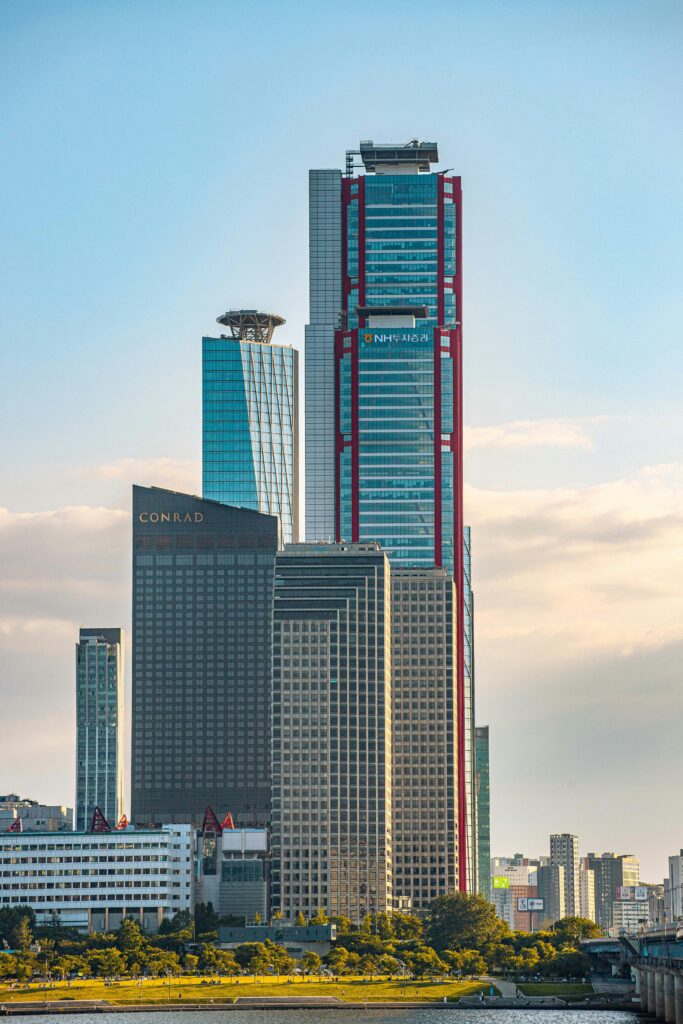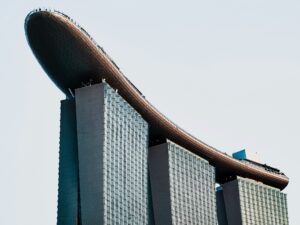
In the dynamic landscape of Asia-Pacific’s office markets, Seoul stands out for its resilience and relative stability, as indicated by recent data from Savills. Despite a decline in annual office transaction volume, Seoul’s performance outpaced other major cities in the region like Tokyo, Singapore, and Shanghai.
According to Savills’ report, Seoul witnessed an annual office transaction volume of KRW9.3 trillion in 2023. While this represented a 30% decrease from the previous year’s figure of KRW13.4 trillion, it remained comparatively robust considering the challenging global economic environment.
Seoul’s resilience can be attributed to several factors, foremost among them being its high office occupancy rates. Despite the widespread adoption of remote work, South Korea maintains one of the highest occupancy rates in the region, underscoring the strength of its leasing market.
Strategic investors played a pivotal role in Seoul’s office market dynamics in 2023. With office space at a premium and vacancy levels at historic lows, investors opted for direct investment in prime properties to secure space for their operations. This trend was exemplified by key transactions such as Nexon’s acquisition of Autoway Tower (GBD), Hyundai Motor Company’s investment in Scale Tower (GBD), and the National Credit Union Federation of Korea’s stake in Tower 8 (CBD). Given the anticipated continuation of low vacancy rates in the near term, this trend is expected to persist throughout 2024.
While some transactions in 2023 experienced price corrections, with final prices slightly lower than initial bid prices, this did not dampen the overall market sentiment. For instance, Concordian, a notable transaction in Q2/2023, saw a 7% decrease from its initial bid price, while Yongsan the Prime Tower, concluded in Q3/2023, reflected a 14% price decrease compared to earlier negotiations. Nevertheless, the upward trajectory of rents contributed to an overall increase in gross cap rates, estimated to be in the mid-to-high 4% range by year-end.
In summary, Seoul’s office market continues to exhibit resilience and attractiveness to investors despite broader economic challenges. With robust leasing demand, scarcity of office space, and strategic investments driving market dynamics, Seoul stands as a beacon of stability amidst regional fluctuations in the Asia-Pacific office sector.




Thanks
mexico pharmacies prescription drugs
https://cmqpharma.com/# mexican pharmaceuticals online
pharmacies in mexico that ship to usa
purple pharmacy mexico price list: mexican pharmacy – mexican online pharmacies prescription drugs
https://indiapharmast.com/# world pharmacy india
mexican pharmaceuticals online: reputable mexican pharmacies online – mexico drug stores pharmacies
reputable indian online pharmacy Online medicine home delivery best india pharmacy
https://foruspharma.com/# mexican border pharmacies shipping to usa
п»їbest mexican online pharmacies mexico pharmacies prescription drugs mexican pharmaceuticals online
buying prescription drugs in mexico mexican online pharmacies prescription drugs mexican online pharmacies prescription drugs
https://indiapharmast.com/# reputable indian online pharmacy
buying prescription drugs in mexico online: mexico drug stores pharmacies – mexican online pharmacies prescription drugs
buy medicines online in india: top 10 online pharmacy in india – Online medicine home delivery
where to buy amoxicillin 500mg: amoxicillin 500mg cost – buy amoxicillin without prescription
https://ciprodelivery.pro/# buy ciprofloxacin over the counter
http://amoxildelivery.pro/# purchase amoxicillin 500 mg
buy cipro online: ciprofloxacin – cipro
https://amoxildelivery.pro/# amoxicillin 500 coupon
doxycycline 200mg price in india: buy doxycycline hyclate 100mg without a rx – doxycycline antibiotic
http://clomiddelivery.pro/# can i order cheap clomid without rx
http://amoxildelivery.pro/# amoxicillin pills 500 mg
amoxil generic: can i buy amoxicillin over the counter – where can i buy amoxicillin over the counter
http://paxloviddelivery.pro/# Paxlovid over the counter
http://ciprodelivery.pro/# buy ciprofloxacin over the counter
amoxicillin online canada: amoxicillin 30 capsules price – cost of amoxicillin prescription
http://doxycyclinedelivery.pro/# buy doxycycline for dogs
cipro online no prescription in the usa: buy ciprofloxacin over the counter – п»їcipro generic
http://amoxildelivery.pro/# amoxicillin 775 mg
ciprofloxacin over the counter: buy cipro cheap – antibiotics cipro